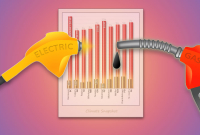Support strong Canadian climate journalism for 2025
Canada may not be able to donate millions of doses of the only COVID-19 vaccine made in the country because the World Health Organization is leaning against granting it an emergency-use licence.
Medicago's two-dose Covifenz vaccine was authorized by Health Canada in February for adults 18 to 64. In clinical trials it was more than 70 per cent effective at preventing COVID-19 infections and 100 per cent effective against severe illness, prior to the Omicron wave.
Medicago has also submitted an application to get their vaccine — the only one in the world that uses vaccine-like particles grown in a plant — approved by the World Health Organization.
However, tobacco company Philip Morris owns about one-fifth of Medicago, and the WHO indicated Wednesday that the application was unlikely to proceed for that reason.
Dr. Mariângela Simão, WHO's assistant director general for drug access, vaccines and pharmaceuticals, said the WHO has strict policies about engaging with tobacco companies and arms manufacturers. As such, she said the review process for Medicago is on hold, and "it's very likely that it won't be accepted for the emergency-use licence."
Medicago President Takashi Nagao said in a written statement that the company has not had an "official communication" from the WHO but stressed the issue is not related at all to the vaccine's safety or effectiveness.
A WHO emergency-use licence is required for a vaccine to be used by the COVAX vaccine-sharing alliance, the main mechanism for helping get vaccines to people in countries that can't afford to buy them.
If the WHO rejects Medicago's vaccine, Canada won't be able to donate any of its doses to the alliance, which is desperate for doses to reach its goal of vaccinating 70 per cent of people in every country by July.
Canada has a contract for 20 million doses and an option for up to 56 million more, but Canada does not need them. More than 85 per cent of Canadians over the age of five are now fully vaccinated and going forward Canada is relying almost solely on the mRNA vaccines from Pfizer-BioNTech and Moderna.
Canada had promised to donate any excess vaccines it purchased to COVAX.
Canada could try to sign bilateral donation deals to donate Medicago, but those are more time-consuming and many countries that need vaccines the most still rely on WHO approval processes rather than conducting their own.
University of Ottawa law professor David Sweanor, who has made a career of going after tobacco companies in court, said it is "crazy" for the WHO to reject a perfectly good vaccine just to make a point about tobacco.
"We would rather have deaths by COVID in low- and middle-income countries, that would depend on approval by WHO, than a tobacco company … even indirectly get any credit for having saved those lives," he said.
"And why are we mad at the tobacco companies? Because they've caused people to get sick and die. So how are we going to get even? We're going to cause people to get sick and die."
Currently only one in 10 people in the world's poorest nations are fully vaccinated against COVID-19, and only one in seven have even one dose. In high-income countries, three in four people are fully vaccinated and half now have a third booster dose as well.
The WHO has authorized 10 vaccines now for an emergency-use licence, including Pfizer, Moderna, Oxford-AstraZeneca and Johnson & Johnson.
Health Minister Jean-Yves Duclos said Thursday he and Innovation Minister François-Philippe Champagne are following the process with the WHO very closely.
"Minister Champagne and I have contacted Medicago to make sure that its contact with WHO is done properly," he said.
Canada invested $173 million in Medicago in 2020 to support development of the Covifenz vaccine and help Medicago expand its production facility in Quebec.
Nagao confirmed Canada is currently Medicago's first and only customer, but he said there are ongoing discussions with others. Medicago has not said if it applied for approval anywhere else yet.
"We cannot comment further on these discussions as they are confidential," he said.
On Thursday, Health Canada approved the use of Moderna's COVID-19 vaccine for children between the ages of six and 11 years old.
The vaccine known as Spikevax had already been approved for those ages 12 and up. The pediatric version for children six to 11 is two 50-microgram doses. The vaccine for ages 12 and up is two 100-microgram doses.
This report by The Canadian Press was first published March 17, 2022.




Comments
With a simple Google search you can see that WHO is run by, big pharma scientists with financial ties to research. So they have no interest in letting any new upstart take away a piece of the big pharma pie.
So out comes there excuse to keep Medicago out of the loop.
People in our family have died because of tobacco addiction. I get it. Rejecting this vaccine for the reason given is obscene, given the world wide need for an effective and cheap vaccine. WHO is suspect in my mind, as are all UN organizations, which are forced to be overly sensitive to political issues only tangentially related to the problems they are trying to solve.